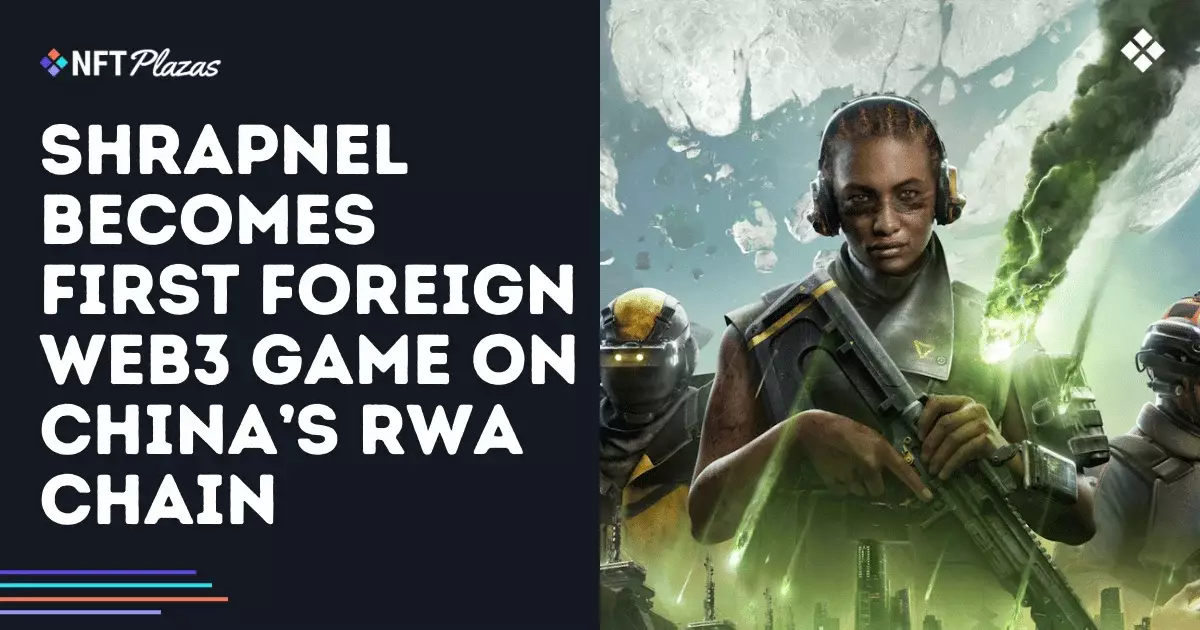In an era where digital gaming continually evolves and the lines between traditional gaming experiences and blockchain technology blur, Immutable’s newly launched Perpetual Rewards Programme promises to redefine player engagement. The concept of rewarding players with cryptocurrency—a method that many skeptics have dismissed as a passing trend—now stands firmly at the forefront, offering not just rare digital assets but also a potential income source for participants. By creating a structured tier-based reward system, Immutable aims to incentivize player engagement that traditional gaming platforms have neglected for far too long.
When the first draw took place on April 10, generating an impressive pool of 235,758.46 $IMX tokens—approximately $93,000—it’s apparent that this initiative holds substantial weight for both the developer and the players. While some may argue that this type of financial incentive detracts from the fundamental fun of gaming, it might also represent an unprecedented opportunity for players to monetize their time and effort within digital realms.
Rethinking in-game Achievement
With the Perpetual Rewards Programme, Immutable turns the traditional gamification practice on its head. Instead of earning points for mere accomplishments, players can translate their in-game actions into tangible benefits in the form of cryptocurrency. The incorporation of Gems as the main currency for redeeming entry into the weekly draw is a significant leap forward. Yet, this paradigm shift doesn’t come without its challenges, especially regarding player access and market fluidity. How will casual gamers respond to a system that rewards them based on previous engagement levels, and can blockchain technology become a genuine ally for players outside established gaming ecosystems?
Players must now reflect on their strategies not only in gameplay but in resource management as well. The tier structure—dividing prizes into Common, Uncommon, Rare, Epic, Legendary, and even a Mythic Draw—introduces a level of exclusivity that adds to the excitement. Still, it begs the question of whether this exclusivity fosters healthy competition or merely exacerbates elitism within the gaming community.
Are We Rewarding Participation or Skill?
The crux of Immutable’s program lies in its method of determining eligibility for rewards—an approach influenced significantly by past player activity. This raises an essential discussion about the characteristics of skill-based versus participation-based gaming. Acknowledging players’ historical contributions may indeed motivate more extended participation. However, will this method inadvertently favor the habitual player over the skilled one?
Moreover, while the programme alters the gaming landscape emotionally and financially, it risks alienating players who occupy niches within lesser-known games. For games like Guild of Guardians and Illuvium, how will this affect the community dynamics if only specific titles are valued in monetary terms? As Immutable opens this floodgate of rewards, it must ensure that they do not inadvertently narrow the scope of what it means to engage meaningfully with a game.
The Balance of Economic Dependency
The duality of gaming as a source of entertainment and economic opportunity rests uneasily within the Perpetual Rewards Programme. By placing financial stakes at the heart of play, Immutable may risk creating a dependency that could backfire. Should the market fluctuate drastically, it could transform players’ enthusiasm into disappointment, potentially harming the very community that the programme is designed to support.
Furthermore, as players invest their time and resources, the gaming experience could transform from a pastime into a pressure-filled endeavor. In penetrating the vivid ambitions of current gaming culture—driven by the desire for financial rewards—Immutable must be conscious of keeping the balance between fun and investment.
Lastly, while the programme shows promising potential in establishing a new era of incentivized gaming, it also emphasizes the pressing need for ongoing dialogue surrounding ethical gaming practices, community engagement, and ensuring inclusivity in access. Could Immutable’s approach herald an innovative transformation in player economy, or will it prove too dangerous a game for both developers and players? Only time will tell.















